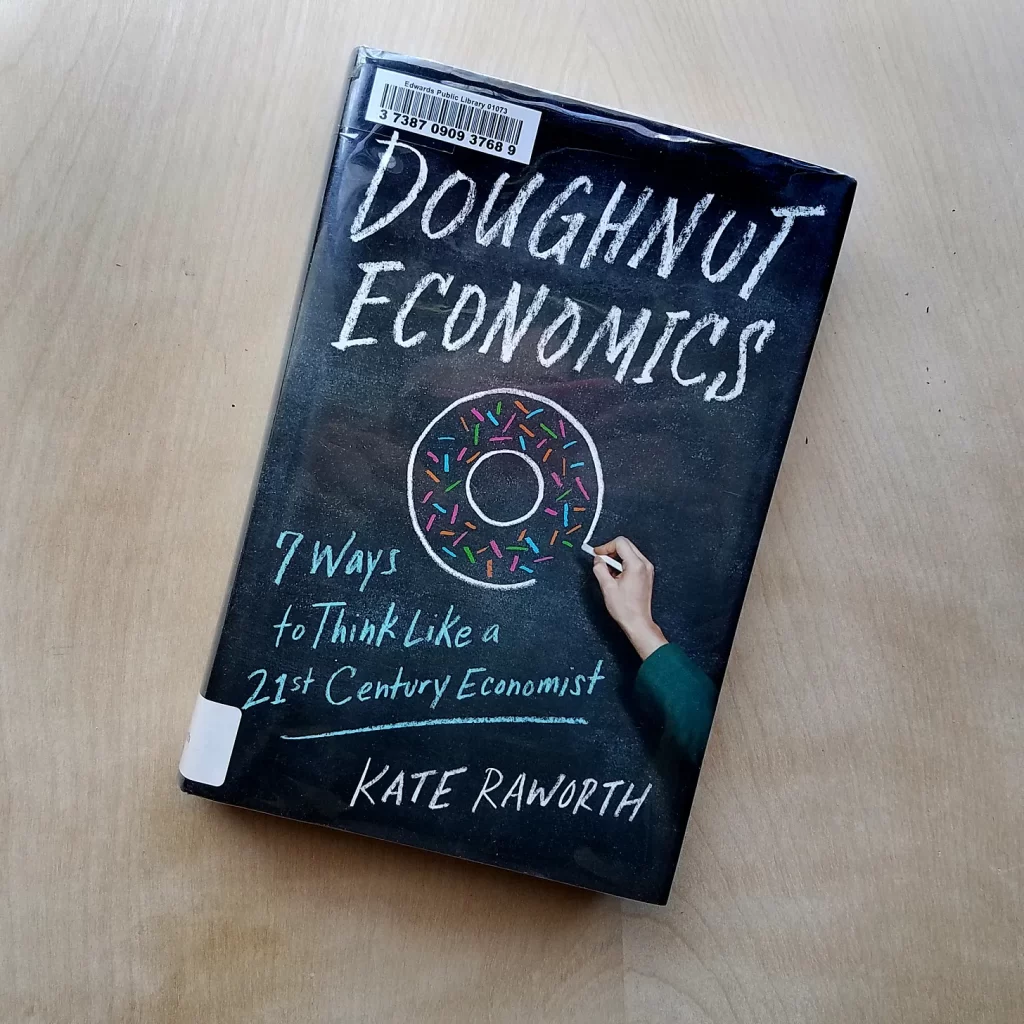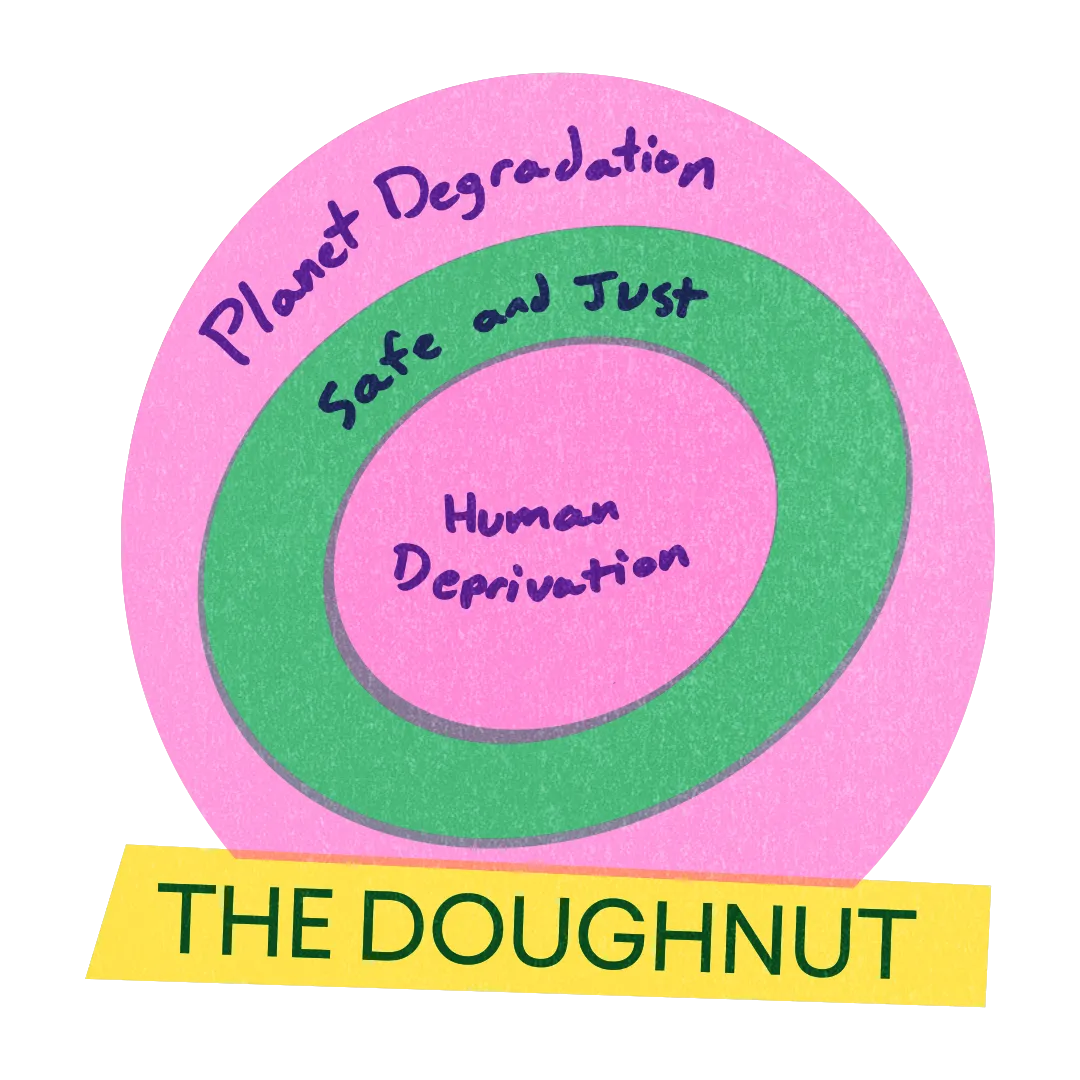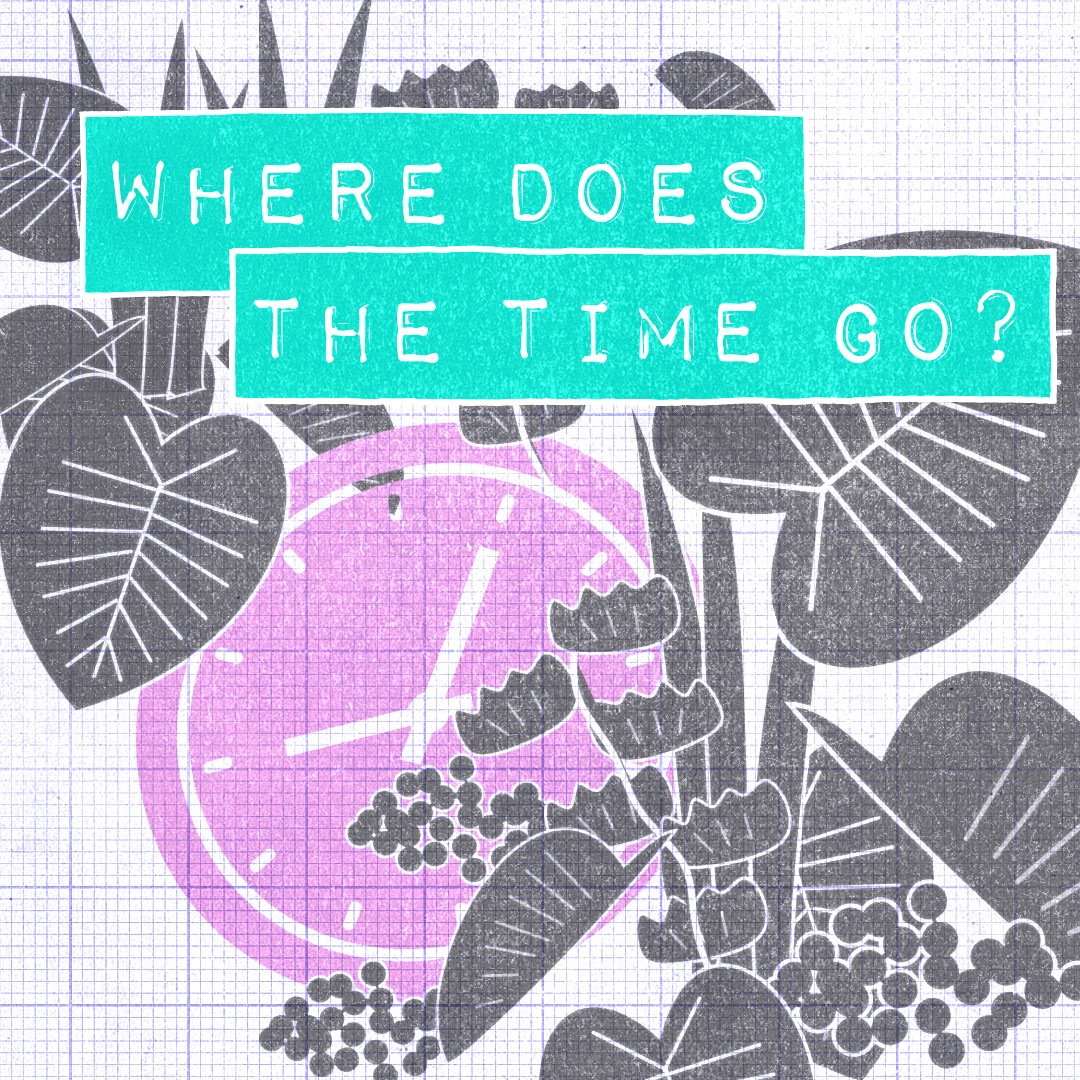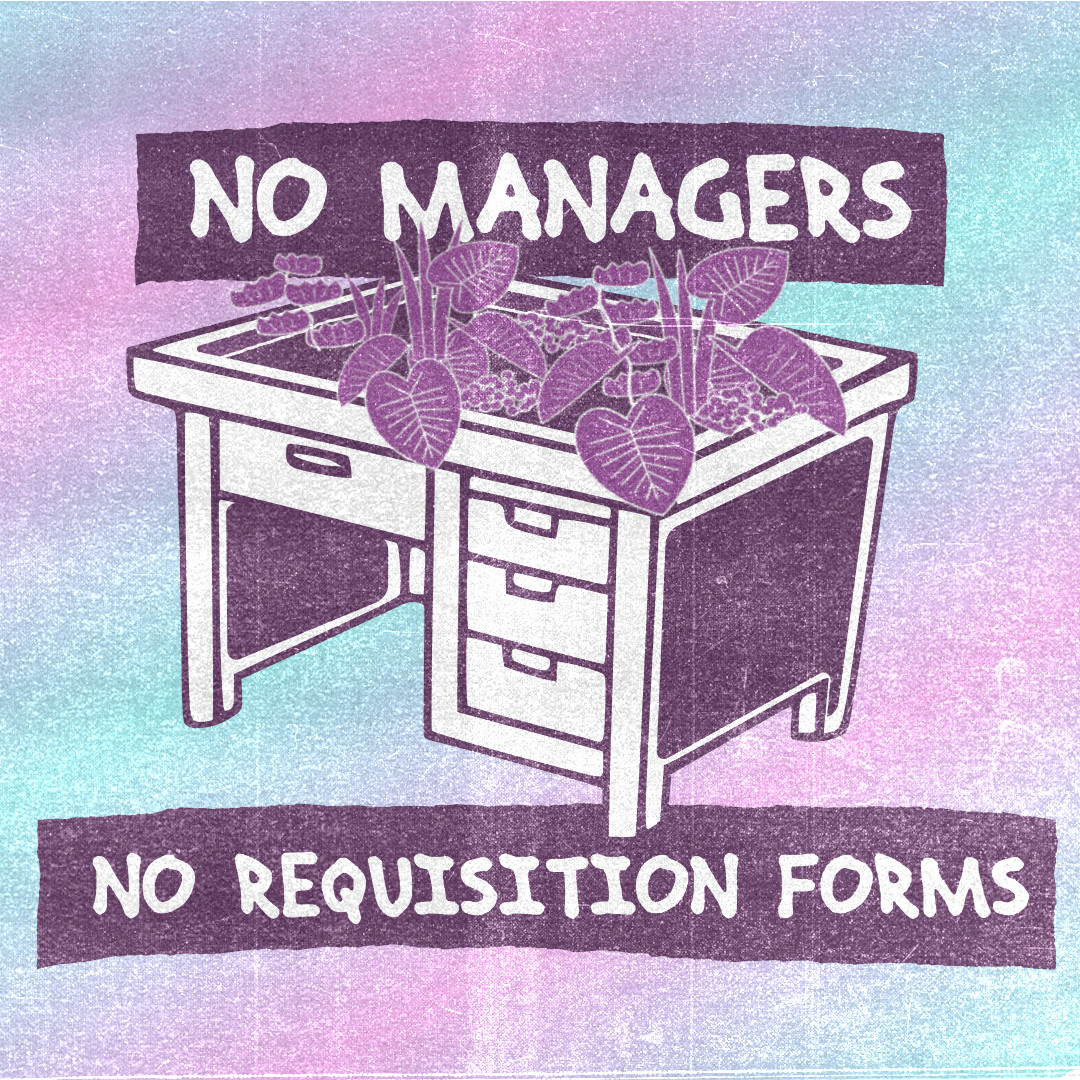This week I’ve still been thinking about what the economy would look like if universal human flourishing, as opposed to growth or profit, was the goal. I have a book to recommend that I’ve found super useful.
A better world is possible. Subscribe to learn how to build it!
A book worth reading: Kate Raworth’s Doughnut Economics
I love this book because takes apart ubiquitous assumptions, gives a tour of inspiring new ideas, and has a reference list full of treasures I can’t wait to track down.
Many ideas from economics have come to feel like common sense. These will probably sound familiar: People are generally self-interested, lazy, and greedy; economic growth can solve most problems; the economy can be thought of as a mechanical system governed by deterministic mathematical laws, and so on. These assumptions shape the way people see the world, how they make decisions, and what goals and paths seem reasonable. Such assumptions are hiding behind policies, business strategies, and individual decision-making. The problem is that these ideas are hopelessly out-of-date. Many were dubious from the start. Without updated thinking, it is hard to make significant changes in the world.
In Doughnut Economics, Kate Raworth takes apart seven key assumptions and offers replacement ideas better suited for creating a just and sustainable world. Along the way she offers insightful histories of the old ideas and an eye-opening tour of work that shows alternative ways of thinking and acting.
Here are three of the seven shifts:
From rational economic man to social and adaptable humans— The traditional assumption is that people are essentially selfish, calculating, isolated individuals. This was useful for classical economic calculations but doesn’t line up with the complexities of how real people act. Instead, people are deeply influenced by their context, have a complex combination of selfish and generous impulses, and use sophisticated approximations to make decisions. While some circumstances bring out people’s competitive aspects, in other settings we can be cooperative, caring, and altruistic.
From mechanical equilibrium to dynamic complexity— Traditional economics imagines the economy as a machine. Sometime literally. Like a machine, it’s imagined to work in regular, predictable ways, based on straightforward mechanical laws. It turns out that these predictive laws simplify the situation too much. Instead of a machine, Raworth suggests biological metaphors. The economy would be better seen as a forest or garden (forest garden?) with many interacting cycles and processes. Rather than looking to mechanical engineering or classical physics, we should look to complexity science. Useful tools can come from studies of weather, ecosystem, or organisms. The key idea is that these kinds of systems have to be thought of as whole, interconnected webs of interactions that act in ways that can be understood, but not exactly predicted.
From “growth will fix it” to distribution and regeneration by design— Rather than assume that the rising tide of growth will automatically raise everyone up and eventually clean up the environment, economic activity has to be designed to inherently distribute goods and wealth and take care of environment. Improved general standard of living and a sustainable world come from deliberate political and ethical decisions, rather than as an automatic result of growth.
Each of the seven shifts works toward finding a way to live in the Goldilocks zone between critical human deprivation and critical planetary degradation– in the balance between having too little for human well-being and having too much for the planet to sustain. This is the doughnut in the book’s title.
Each of the ideas she presents is a great counter to assumptions that many people don’t even know they have. The new ideas are rich with ways to enact them in the world. It is well worth reading.
This this book is a great roadmap for new ways of thinking about the economy.

Have you read this book? What did you think? Are there ideas that stood out to you?
I’d love to hear from you. What’s your vision for a living world? What projects and ideas are you excited about? What topics do you want to see here? What am I missing? Let me know in the comments.




